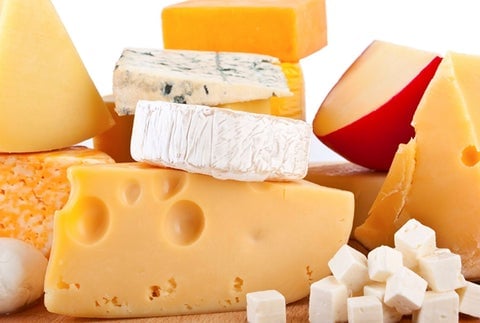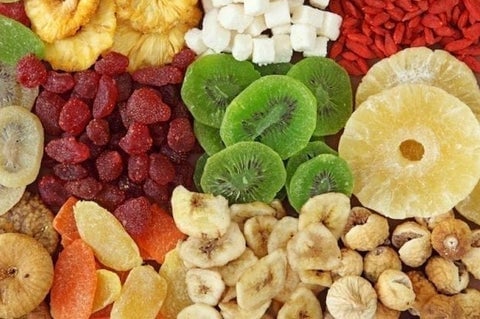The Best Foods for Pregnancy
The magical nine months of a child’s development during pregnancy are an incredibly exciting and nerve-wracking time in any woman’s life. Yet to ensure the wellbeing of both mother and child, it’s important to know about the best foods for pregnancy that will provide the energy and nutrition required. The easiest way to start, then, is to go over covering what not to eat, as there are far fewer foods you should steer clear of than foods you can eat.
Foods to avoid in pregnancy
Lovers of sushi, be warned: you need to reduce your consumption of raw fish, and especially shellfish, when pregnant. Uncooked fish can cause food poisoning, as well as infections that may be passed onto your unborn child. One of the most concerning bacterial infections is listeria, which can be transmitted to raw fish when it is being processed, such as through drying or smoking. Side effects can cause miscarriage, premature delivery, and stillbirth – so, in order to reduce the risk, it’s vital you skip the fish.
You will also need to avoid raw eggs – so no hollandaise sauce or homemade ice creams – as their risk of salmonella can cause severe cramps and diarrhoea; and limit your alcohol consumption as much as possible, as there are numerous health detriments to your baby’s development caused by it.
With that out of the way, let's move onto foods you need to get into your diet. To maintain your own health and aid the development of your child, you’re going to need healthy fats, carbohydrates, protein, and a variety of minerals and vitamins – and you’ll find all of those below.
Dairy products

As your child grows, you need to increase your intake of calcium and protein: dairy products are ideal for this, as they contain high levels of magnesium, zinc, and B vitamins. Zinc is especially important as it aids your child's DNA construction, assisting with cell division and tissue formulation. You’re also going to need to heighten your magnesium levels to regulate your blood sugar levels and prevent fatigue.
An easy to achieve some of these necessary health benefits is by incorporating more cheese, milk, and yogurt into your diet. Greek yogurt, such as Fage yogurt is most calcium-laden type, and contains high levels of protein and folate which can prevent birth defects on the child’s spine and brain. While standard yogurt is heaped with good bacteria that reduce the risk of uncomfortable yeast infections – which are more likely during pregnancy – be sure to seek out probiotic yogurt, as the bacteria it contains assists with healthy digestion.
Your choice of cheese, meanwhile, remains pretty much unaffected. All hard cheeses – such as cheddar and stilton – are safe to consume, due to their reduced water content compared to soft cheeses, meaning bacteria are less likely to fester in them. But when it comes to soft cheeses, you need to be sure they’re made with pasteurised milk to remove the risk of listeria.
The soft cheeses you can safely enjoy include cream cheese, mozzarella, goat's cheese, ricotta, haloumi, and feta, as well as a few others. One easy way to get put some more feta in your diet is with a Greek salad, as another ingredient from this dish – olives – assist in healthy operation of your metabolism, and the oleic acid contained within olives reduces cholesterol levels in the blood at the same time as protecting your baby from the risk of asthma.
Lean meat: high in protein and iron
Two of the most important products you’ll need in a pregnancy-friendly diet are iron and protein. The latter is vital for the proper development of your baby’s organs and muscles, as well as brain growth, while also aiding breast tissue growth and increasing blood supply throughout pregnancy. Iron, meanwhile, is a crucial mineral for the added blood volume observed during pregnancy, as it is used by red blood cells for hemoglobin. Low levels of hemoglobin can result in dangerously short pregnancies and a heightened risk of postpartum depression.
This is why an added amount of lean meat is a must within your meal plans during pregnancy, so you’re going to want more chicken, beef, and pork on your plate for the substantial amounts of protein they offer. They also have large doses of B vitamins, necessary for limiting the risk of birth defects such as spina bifida. Increasing your regular consumption of red meats is the best way to supplement your body with the protein and iron needed to keep your strength up, especially in the third trimester of pregnancy.
Eat more fruit during pregnancy

As so much energy is drained during pregnancy, it’s great practice to have healthy snacks at hand to reduce your risk of fatigue. Dried fruit is a good option on account of its high calorie content, fiber, and fructose levels that help maintain blood sugar levels – it’s also more compact, thanks to its reduced water content, making it easier to carry around.
Fiber-rich fruits include prunes – loaded with vitamin K, which is vital for blood clotting in preparation for labor – and dates, which will also give you an added dose of potassium and iron. Elsewhere, try and eat more berries as they are high in healthy carbs and vitamin C, and their impressive water content will keep you hydrated. Also incorporate more avocado into your diet – try some on toast with fried eggs for extra protein – as they are rich potassium to prevent muscular cramps and their healthy fats build up the muscle and brain tissue of your child.
When it comes to caring for yourself and your baby during pregnancy, there are plenty of ways to put more lean meat, fruit, and cheese in your diet, with smoothies, salads - or why not try some succulent, farm-to-table bison burgers from Buffalo Market. Full of protein and grilled with large slices of calcium-rich cheddar cheese, you won’t just be indulging yourself but caring for your child as well – check out our recipe here to try for yourself.

